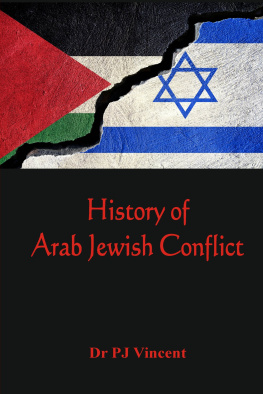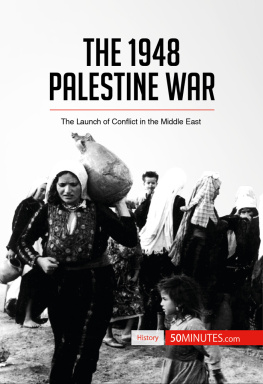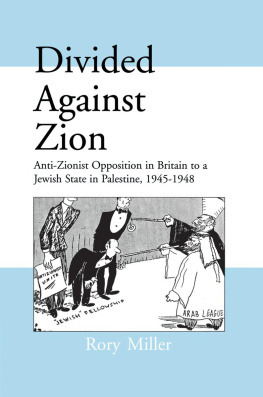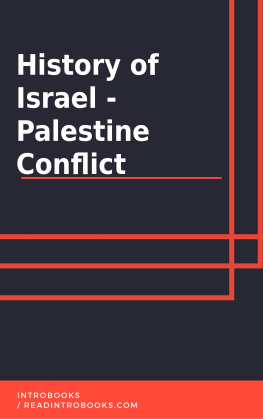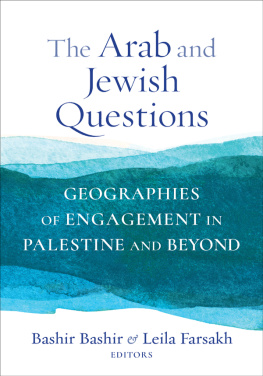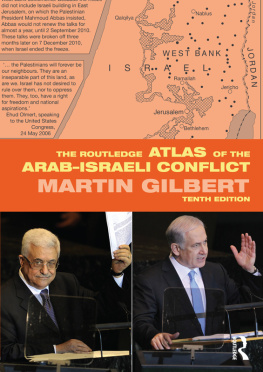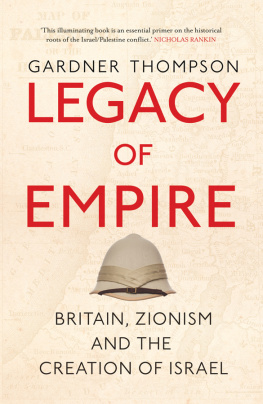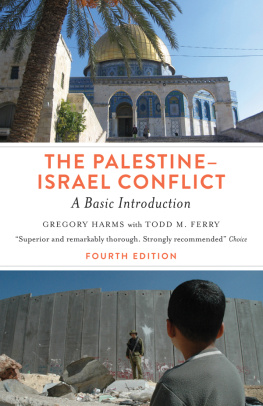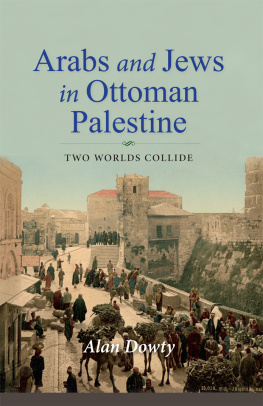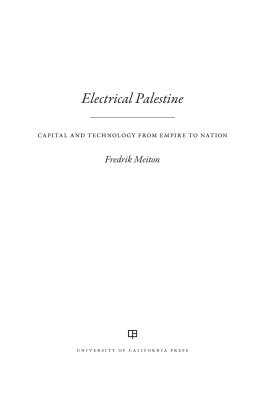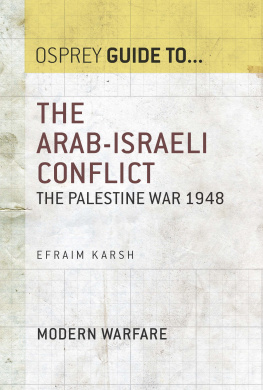Published by
Vij Books India Pvt Ltd
(Publishers, Distributors & Importers)
2/19, Ansari Road
Delhi 110 002
Phones: 91-11-43596460, 91-11-47340674
M: 98110 94883
e-mail:
www.vijbooks.com
Copyright 2019, Dr. PJ Vincent
ISBN: 978-93-88161-93-0 (Hardback)
ISBN: 978-93-88161-94-7 (ebook)
All rights reserved.
No part of this book may be reproduced, stored in a retrieval system,
transmitted or utilised in any form or by any means, electronic,
mechanical, photocopying, recording or otherwise, without the prior
permission of the copyright owner. Application for such permission
should be addressed to the publisher.
There is an interesting story in wider circulation about Arial Sharon, the former Prime Minister of Israel and the champion of Israels victory over the Arab forces in the 1967 War and the chief architect of Israels unauthorized occupation in the Palestianian land. The story sounds as follows:
Sharon was put on trial as a part of probing his alleged involvement in a massacre in an Arab village in the 1948. The judge asked him, What made you commit such a heinous crime (killing innocent Arabs)? It was the false promise of the state of Israel that made me doing so, he replied in an resolute and unwavering manner. What? How come a false promise of the State motivated one to kill the Arabs, the judge went on asking. Sharons argument was logically placed, You only tutored us, Palestine is a land without people, and the land without people is for the people without land. So, when I saw people (Arabs) here I shot at them. Who is the culprit then, you or me? The blame no doubt goes to the State of Israel, argued Sharon.
Amos Oz, one of the most prolific Israel authors writes in his autobiographical work, Under This Blazing Light:
When Israel declared its independence, I was nine years old. I remember my father coming to my bed lying beside me in the darkness. When I was a boy, I was beaten in school in Russia and then in Poland for being a little Jew, he said. Your may still get beaten in school, but not for being a Jew. This is what the state of Israel is all about. In the darkness, I
Above are two short narrative texts provide channels for knowing best how the formation of Israel in the 1948 impacted up on the lives of different people in different ways. There is perhaps little direct point in taking the popular oral narrative about Sharon in the context of this book; but in the general context there is every point as it deals with a widely accepted and shared colonial construct about the land of pre-occupied Palestine-an empty land and a land of wilderness. By raising the slogan land without the people for people without land and equating Palestine to uninhabited barren land, Zionists were creating a set of oriental fantasies around the land of Palestine. They not just ignored the Arab population, but also negated the very existence of a land and its culture.
It is interesting to note in this context that Theodore Herzl had made no references to Arabs in his diary or his written reports afterwards while passing through the Arab villages during his visit to Palestine. This Oriental attitude was much evident even in Herzls word. He says:
It is more and more to the interest of the civilised nations and civilisations in general that a cultural station be established on the shortest road to Asia. Palestine is this station and Jews are the bearers of culture who are ready to give property and lives to bring about its creation.
This book also shows a critical academic vigour in assessing some of the major events and movements in the history of Palestine issue. The second chapter, for instance, spends larger part of the time on contextualizing the history of evolution of Zionist movement and on investigating the specific politico-economic conditions of the European continent in the last few centuries that are said to have set in motion an imagining of Jewish Home Land. A detailed account of the Biblical discourse related to the land of Palestine given in the first chapter adds strength to the overall academic design of the work.
With an extensive examination of literature available, Vincent places the history of Palestinian nationalism in two much wider contexts; Arab Nationalism and Ottomanism. This is interesting as most of the works on the history of Palestinian Nationalism seldom keep concern over the Ottoman policies of reform, the land tenure system, trade and agricultural expansion and European penetration which drastically transformed the pre-capitalist and traditional Palestinian society and spawned a national consciousness among Palestinian population by the turn of the nineteenth century. This book also exposes the failure of much-hyped Arab nationalism for its alleged inability to address the issue of Palestinians despite the grand assertions of its exponents. This is done through a methodical investigation into a plurality of related but divergent even fractious tendencies that characterized Arab nationalism in the nineteenth and twentieth centuries.
As mentioned earlier, the Indian position in the question of Palestine has engendered tremendous amount of interesting works, works that have, in effect, opened new fields of academic enquiry. This work in that sense does not address an uncharted territory. But it contains much promise as it creates a different terrain of understanding of the issue by discussing it from different vantage points. That is what makes it interesting and intellectually stimulating.
Prof. M.H. Ilias*
Endnotes
Amos OZ (1996) Under this Bashing Light, Cambridge: Cambridge University Press, p.8.
Guy Ben-Porat (2000) A State of Holiness: Rethinking Israeli Secularism, Alternatives, Vol.25, No.2, April-June, pp. 223-45.
Alan Dowty (1998) Israels First Fifty Years, Current History (Philadelphia), Vol. 97, No. 615, January, pp.26-31.
Ben Porat, n.2, p.232.
Clive Johns, and Emme Murphy (2002) Israel: Challenges to Identity, Democracy and State, London: Rutledge, p. 22.
Theoder Herzl in his address to the first Jewish congress. Cited in Johnes and Murphy, n.5, p.12
Yaacov Yadgar (2003) Between the Arab and the Religious Rightists: Significant Others in the construction Jewish- Israeli National Identity, Nationalism and Ethnic Politics, Vol.9, No.1, Spring, p.55
Ibid.
* Director, School of Gandhian Thought and Development Studies, Mahatma Gandhi University, Formerly Professor & Director, India-Arab Cultural Centre, Jamia Millia Islamia & Formerly Professor, Centre for Contemporary Middle East Studies, University of Southern Denmark.
This book is the outcome of my doctoral research. It is materialised with the constant support, encouragement, help and co-operation of many. My greatest debt is to Prof. (Dr.) E.K.G. Nambiar, Former Director, Kunhali Marakkar Centre for West Asian Studies, University of Calicut, who was always my source of inspiration as a teacher and mentor. I am most grateful to him for his critical observations and comments, guidance and lots of love and affection. I am also grateful to Prof. M.G.S. Narayanan for his support and helpful advice. This book would not have been possible without the unflagging encouragements and generous assistance of Dr. N. Sebastian, HoD, Department of Political Science, University of Calicut. I acknowledge most gratefully the keen interest evinced by Dr. M.H. Ilias who prepared the thoughtful and informative foreword of this book. I acknowledge the support and encouragements received from honourable Speaker of Kerala State Legislative Assembly, Sri. P. Sivaramakrishnan.

